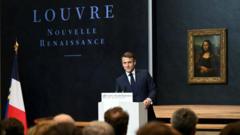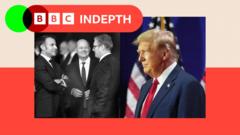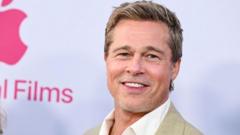The challenge for François Bayrou, recently appointed as France's new prime minister, lies in navigating a divided National Assembly and forging alliances across the political spectrum while managing the country's pressing budget issues.
Can François Bayrou Guide France Out of its Political Quagmire?

Can François Bayrou Guide France Out of its Political Quagmire?
As President Macron appoints centrist François Bayrou amidst a government crisis, questions arise about his ability to foster unity in a fragmented parliament.
In a bid to stabilize the French government, President Macron has appointed François Bayrou, a veteran centrist politician renowned for his experience and respect across party lines. However, following the recent no-confidence vote that ousted Michel Barnier, the question remains: can Bayrou avoid the pitfalls that led to his predecessor's downfall?
Bayrou takes on the role of prime minister under the French constitution, but he requires parliamentary support to govern effectively. Yet, the National Assembly remains stuck in a three-bloc impasse, likely preventing any significant shifts before July 2025. Observers are cautious about Bayrou's prospects in this politically fraught environment.
Macron's search for potential allies included consultations with various political leaders to form a coalition capable of moving the country forward. Initially, he explored a partnership with the Socialist Party (PS), but their condition to adopt leftist policies clashed with Macron's agenda, effectively narrowing his options to his inner circle.
Bayrou, 73, has been a steadfast ally of Macron since his first election in 2017 and played a crucial role in the president's rise by stepping aside to support him. Leading the Modem party since its inception in 2007, Bayrou has maintained a centrist approach throughout his four-decade career, drawing from his roots in Christian Democracy.
He briefly held the position of justice minister in 2017 before stepping down amid scandal, from which he was eventually cleared—though pending legal challenges loom. A committed Catholic and father of six, Bayrou serves as mayor of Pau and advocates for decentralization.
Having campaigned for the presidency three times, Bayrou's past alliances with left-leaning leaders have cultivated trust among Socialists, while his fiscal conservatism resonates with the right. Notably, his respectful relationship with Marine Le Pen of the National Rally provides an avenue to navigate the populist factions.
Political analysts highlight Bayrou's independent-minded approach. According to expert Alain Duhamel, unlike Barnier, Bayrou is expected to shift policies further leftward while asserting his influence at the Hôtel Matignon, the official residence of the prime minister.
This health crisis in French governance is reflective of a significant power shift from the presidency to parliament, reminiscent of the weakened position of leaders during the Fourth Republic. Constitutional scholars note that control has now shifted to parliamentary groups, creating uncertainty over future policies.
Bayrou's initial undertaking will be to assemble a new government within a matter of days, with its composition signaling his strategy for collaboration with both left and right factions. Compounding his challenges, he must also prepare a 2025 budget to replace the one abandoned by Barnier's administration.
Simultaneously, he may encounter resistance from both the left and far-right factions as he endeavors to navigate through the complexities of governance. While Macron backs a non-aggression pact approach to foster cooperation, critics warn it may permit prolonged inactivity on crucial issues like managing the soaring national debt, a pressing concern for the future of France's economy.






















